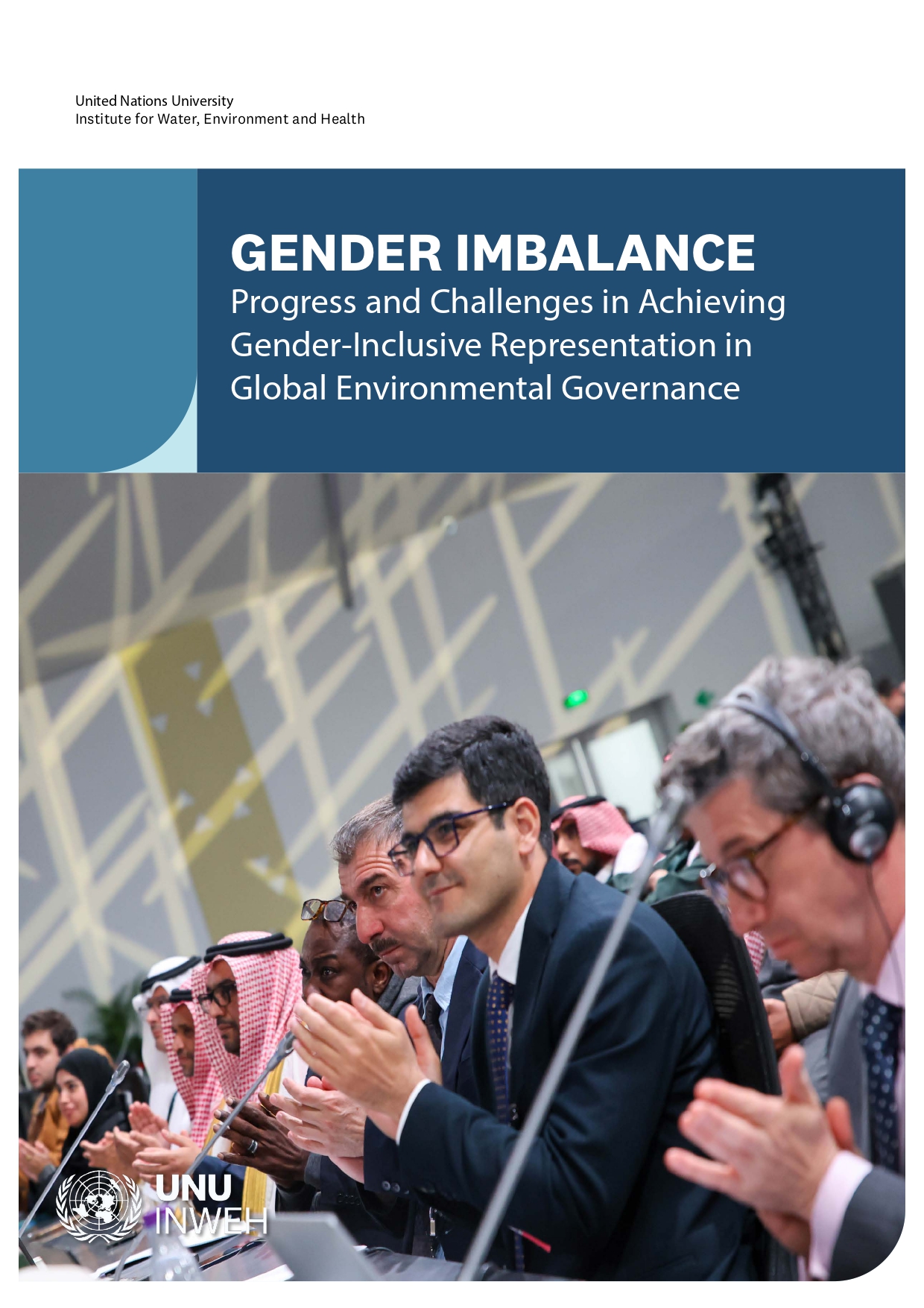UNU-INWEH Research Report: Oluwasanya, G., Jafarzadeh, S., Omoniyi, A., Abu Shomar, R., and Nunbogu, A., Madani, K. (2025). Gender Imbalance: Progress and Challenges in Achieving Gender-Inclusive Representation in Global Environmental Governance, United Nations University Institute for Water, Environment and Health (UNU-INWEH), Richmond Hill, Ontario, Canada, doi: 10.53328/INR25GRR003.
DOWNLOAD PDF

This report by the United Nations University Institute for Water, Environment and Health (UNU-INWEH) analyzes gender representation among national focal points of the three Rio Conventions—the UNFCCC, UNCCD, and CBD—using 2024 sex-disaggregated data from 194 UN Member States. It highlights persistent gender imbalances, particularly in regions like Africa, where systemic barriers and social norms limit women’s participation in environmental decision-making. UNCCD shows the most significant gender gap, followed by UNFCCC and CBD.
The report stresses that gender-inclusive representation is crucial for effective environmental governance, especially in addressing the interconnected crises of climate change, biodiversity loss, and land degradation. Beyond numerical parity, gender inclusivity improves legitimacy, accountability, and policy outcomes. The report also emphasizes the importance of integrating intersecting identities in decision-making processes. It showcases examples of countries that have achieved gender parity through institutional reforms, demonstrating that change is possible. The report calls for urgent action to dismantle structural barriers and embed inclusivity into global environmental governance to ensure long-term sustainability.




